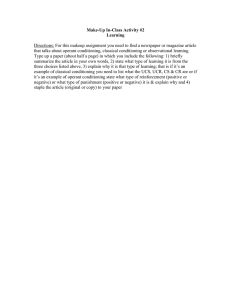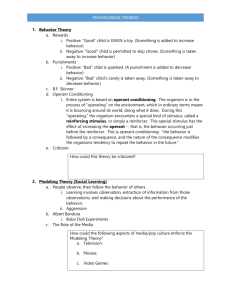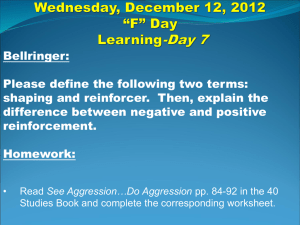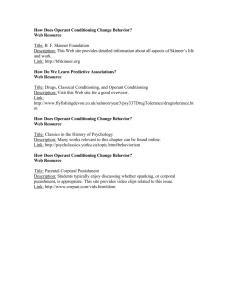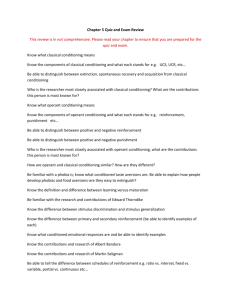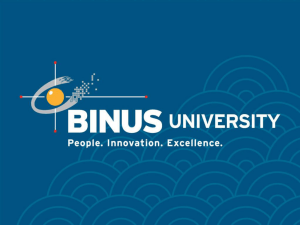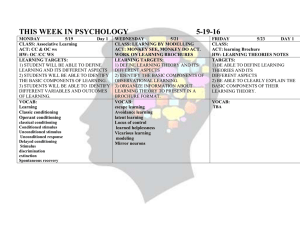PSYC 100 Winter 2013 Exam 2 Review Outline
advertisement
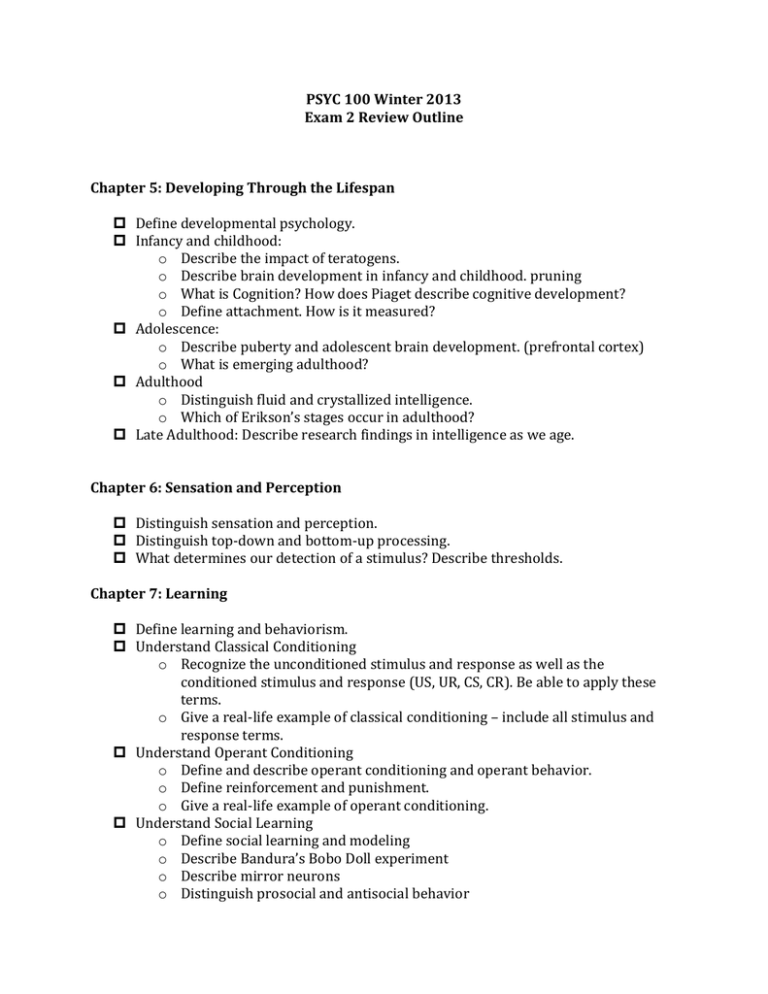
PSYC 100 Winter 2013 Exam 2 Review Outline Chapter 5: Developing Through the Lifespan Define developmental psychology. Infancy and childhood: o Describe the impact of teratogens. o Describe brain development in infancy and childhood. pruning o What is Cognition? How does Piaget describe cognitive development? o Define attachment. How is it measured? Adolescence: o Describe puberty and adolescent brain development. (prefrontal cortex) o What is emerging adulthood? Adulthood o Distinguish fluid and crystallized intelligence. o Which of Erikson’s stages occur in adulthood? Late Adulthood: Describe research findings in intelligence as we age. Chapter 6: Sensation and Perception Distinguish sensation and perception. Distinguish top-down and bottom-up processing. What determines our detection of a stimulus? Describe thresholds. Chapter 7: Learning Define learning and behaviorism. Understand Classical Conditioning o Recognize the unconditioned stimulus and response as well as the conditioned stimulus and response (US, UR, CS, CR). Be able to apply these terms. o Give a real-life example of classical conditioning – include all stimulus and response terms. Understand Operant Conditioning o Define and describe operant conditioning and operant behavior. o Define reinforcement and punishment. o Give a real-life example of operant conditioning. Understand Social Learning o Define social learning and modeling o Describe Bandura’s Bobo Doll experiment o Describe mirror neurons o Distinguish prosocial and antisocial behavior Chapter 8: Memory Studying Memory: o Describe the information processing model of memory. o Encoding, storage, retrieval o Sensory memory, Working memory, Long-term memory Encoding o Distinguish automatic and effortful processing. Storage o Distinguish implicit and explicit memory. o Describe long-term potentiation. Retrieval o What are the three types of memory retrieval? o What are cues for retrieval? o Why do we forget?
